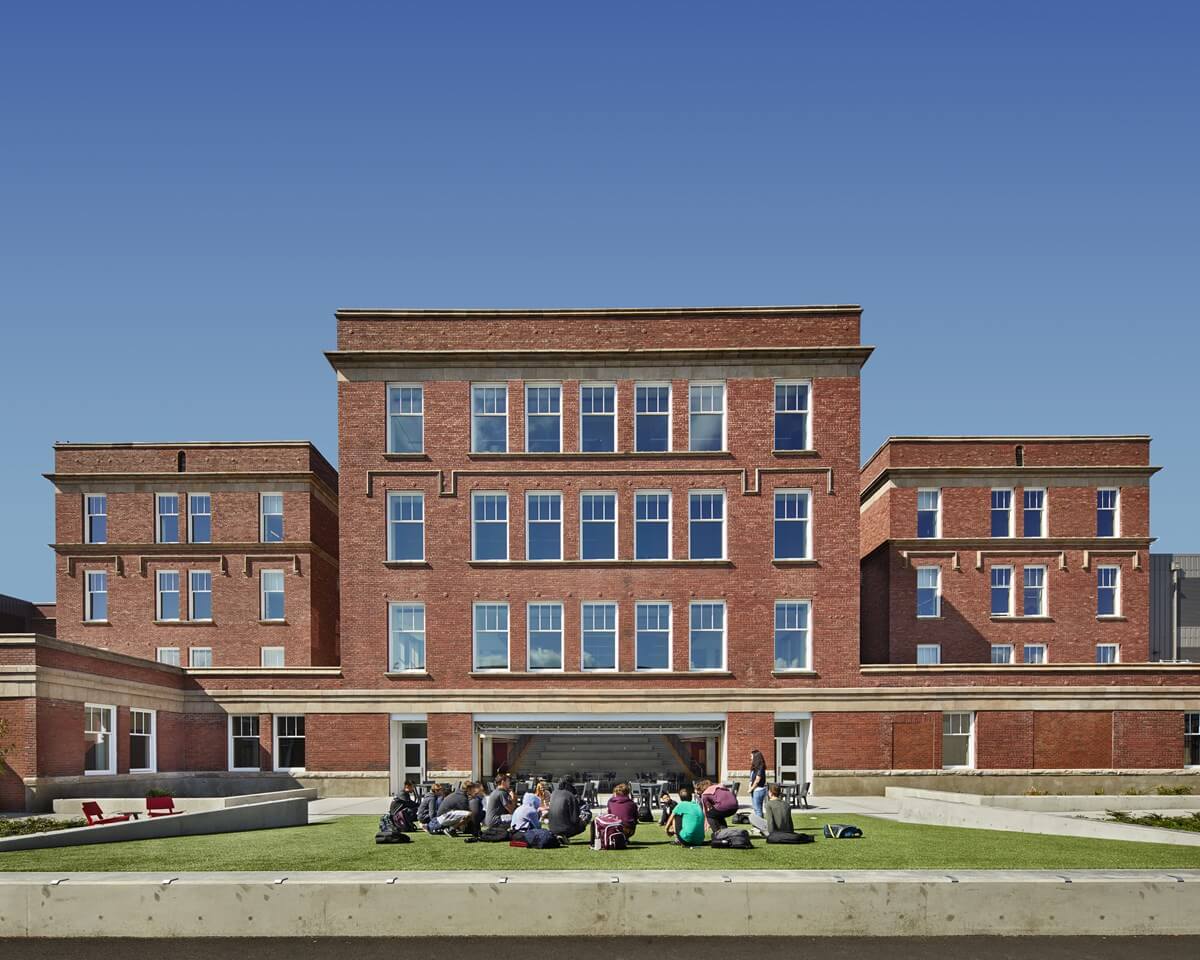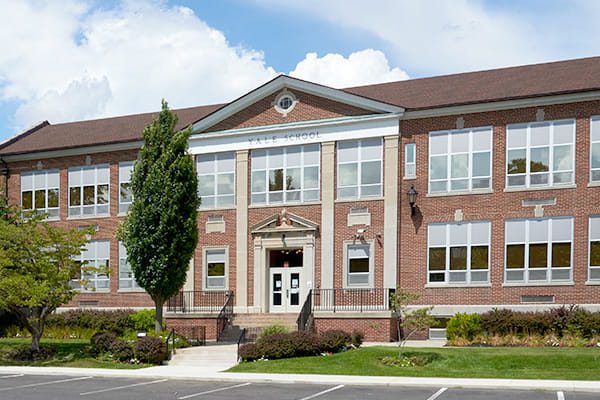Discover the Perks of Advocacy: Save Temecula Schools
Discover the Perks of Advocacy: Save Temecula Schools
Blog Article
How Schools Play an Essential Duty in Shaping Future Leaders and Pioneers
By integrating project-based understanding and interdisciplinary studies, educational organizations challenge pupils to assess and synthesize complex information. Teachers serve as mentors, guiding trainees and nurturing their capacity, while extracurricular activities better develop management skills and strength.
Fostering Important Thinking
In today's rapidly developing world, promoting important thinking within schools has actually ended up being paramount. As society comes to grips with significantly complex worldwide challenges, the capability to evaluate, assess, and synthesize details is important. Schools play an essential duty in developing these abilities, preparing students to navigate and resolve multifaceted troubles with informed, reasoned choices.
To cultivate vital thinking, educators use numerous instructional techniques that encourage energetic discovering and intellectual engagement. Classroom conversations, problem-based knowing, and Socratic questioning contribute in promoting reflective and analytical mind. By testing pupils to question presumptions and consider several viewpoints, these techniques ensure a much deeper understanding of topic past memorizing memorization.
In addition, integrating crucial believing throughout the educational program reinforces its relevance and applicability in varied contexts. Topics such as maths, scientific research, history, and literature each deal unique opportunities to develop students' vital professors. For instance, examining historic occasions requires reviewing resources and comprehending context, while scientific inquiry demands strenuous theory testing and evidence-based thinking.
Eventually, instilling important thinking skills in students equips them with the cognitive devices needed for lifelong discovering and adaptability. It is via this fundamental competence that future leaders will be able to innovate, resolve problems, and contribute meaningfully to culture.
Urging Creative Thinking
Welcoming imagination within instructional frameworks galvanizes trainees to assume past traditional boundaries and discover innovative options. By integrating artistic ventures and creative thinking exercises into the educational program, colleges grow an environment where originality and creative thought are valued. This technique not just enhances the educational experience but also equips trainees with the ability to tackle real-world obstacles in unique means.
Educational establishments can cultivate creativity with varied ways such as project-based discovering, interdisciplinary studies, and the incorporation of arts and technology. Project-based discovering, for circumstances, motivates students to apply their knowledge in useful, often collective, projects that require creative problem-solving abilities. Interdisciplinary research studies allow trainees to draw connections in between various subjects, thus broadening their point of views and improving their innovative capabilities.
In addition, providing students with chances to involve with arising technologies, such as coding and digital design, even more supports their innovative possibility. These tasks prompt trainees to experiment, fail, and iterate, which are crucial components of the innovative procedure (Save Temecula Schools). By keeping a helpful environment where trial and error is encouraged, colleges can ensure that students establish the self-confidence to pursue ingenious ideas
In significance, nurturing creativity in academic setups is vital for shaping future leaders and trendsetters capable of addressing complex international problems with resourcefulness.
Supporting Collaboration

Applying group-based understanding modules and participating jobs permits students to experience the dynamics of teamwork firsthand. This not only prepares them for the collaborative nature of modern-day offices but likewise supports leadership high qualities as they usually have to handle functions such as project managers or team coordinators. In addition, cooperation in the class can damage down social barriers and promote inclusivity, guaranteeing that each student feels valued and listened to.
Additionally, incorporating innovation can even more support collective efforts. Devices like common electronic work areas and interactive systems make it possible for pupils to collaborate successfully, also outside the classroom. As students establish these joint skills, they are better equipped to deal with intricate challenges and introduce, laying the groundwork for their future roles as leaders and trendsetters.
Role of Teachers as Mentors

Mentorship entails customized focus, where teachers identify and nurture private strengths and address weaknesses. Save Temecula Schools. Via individually interactions, teachers can tailor their guidance and support to meet each pupil's one-of-a-kind needs, promoting a sense of self-confidence and resilience. This tailored approach grows a development state of mind, encouraging pupils to view failings as possibilities for learning and development
Additionally, teachers function as duty designs, showing the values of honesty, empathy, and perseverance. Their activities and mindsets provide a blueprint for trainees to emulate, instilling a sense of ethical responsibility and social understanding. By producing a inclusive and supportive class setting, teachers enable trainees to develop interpersonal abilities that are vital for effective management.
Fundamentally, the mentorship offered by educators lays a foundational structure for the development of future leaders, equipping them with the understanding, skills, and values needed to master an ever-evolving globe.
Influence of Extracurricular Activities
When integrated successfully into the educational framework, extracurricular activities dramatically boost pupil advancement and management potential. These tasks give trainees with possibilities to explore rate of interests past the standard curriculum, cultivating a well-rounded ability. Clubs, sports groups, and arts programs grow crucial qualities such as team effort, time monitoring, and durability. Involvement in these activities frequently needs students to take on obligations, thus supporting their leadership abilities.
Additionally, extracurricular participation encourages imagination and development. Trainees took part in drama, dispute, or songs clubs discover to assume seriously and technique issues from diverse perspectives. These experiences infuse self-confidence, making it possible for trainees to voice their concepts and take effort in numerous settings. By collaborating with peers from various backgrounds, students also establish empathy and communication skills, essential qualities for future leaders.
Extracurricular tasks also play a vital function in Click Here academic performance. Research suggests that students included in such programs often tend to have higher qualities and better attendance documents. These tasks give a healthy outlet for tension, More Bonuses adding to total health. Thus, colleges that prioritize a well balanced strategy to education and learning, incorporating durable extracurricular programs, are a lot more most likely to create leaders and pioneers geared up to meet the difficulties of the future.

Verdict
In conclusion, colleges dramatically form future leaders and innovators by supporting essential reasoning, creative thinking, and partnership amongst pupils. By cultivating an encouraging setting that values a fantastic read individual strengths and synergy, institutions equip pupils with the needed skills to navigate future difficulties and drive development.
As trainees establish these collaborative skills, they are better equipped to deal with intricate difficulties and innovate, laying the foundation for their future duties as trendsetters and leaders.
By fostering important reasoning and problem-solving skills, instructors help pupils browse complex difficulties, preparing them for leadership roles in various fields.
By teaming up with peers from different histories, students additionally develop empathy and interaction skills, crucial qualities for future leaders.
In conclusion, schools significantly shape future leaders and pioneers by nurturing important reasoning, creative thinking, and collaboration among pupils. By promoting a supportive atmosphere that values individual strengths and team effort, colleges gear up pupils with the required skills to browse future challenges and drive innovation.
Report this page